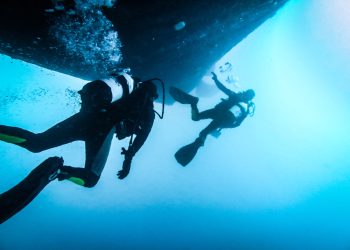USCG released a new guidance for stakeholders and Recognized Organizations when they are developing, implementing, and verifying SMSs, to ensure the ISM Code is effectively implemented on applicable US flagged vessels. This work instruction also includes specific provisions to assist in assessing risks and developing contingency plans for emergency shipboard situations.
A series of vessel accidents in the late 1980s linked to human error, along with a movement among vessel owners to transfer the responsibility of vessel operations to ship management companies, suggested a link between the increase in accidents and management faults. In response to these concerns, IMO adopted the International Safety Management (ISM) Code, Nov. 4, 1993.
The ISM Code places top management in a position to provide for safe ship operations, establish safeguards against identified risks, and continuously improve safety management skills of shore and shipboard personnel. The implementation of a Safety Management System (SMS) provides a means to meet these safety objectives and serves as a platform for company management to document company guidelines related to:
- Safety and environmental protection policies
- Instructions and procedures to ensure companies operate ships in accordance with relevant Flag and Port State regulations
- Defined levels of authority and lines of communication between, and amongst, shore and shipboard personnel
- Procedures for reporting accidents and non-conformities with the provision of the ISM Code
- Procedures for preparing for and responding to emergencies
- Procedures for internal audits and management reviews
The ISM Code and an SMS are more relevant today than ever before. As vessels increase in size and complexity while crew sizes decrease to an optimum level, a fully functional SMS enables a vessel owner to tailor vessel operations to a wide range of conditions. Additionally, as advances in maritime technology outpace the rate in which corresponding regulations or guidelines may be established, an SMS serves a critical role in bridging the regulatory gap and ensuring safe operations.
Flag State Compliance Monitoring
- In accordance with SOLAS, the USCG is ultimately responsible to guarantee effectiveness of delegated functions performed on its behalf, including the SMS audits that have been delegated to ROs. USCG oversight of SMSs occurs continually as part of routine vessel activities including flag state inspections, examinations, and investigations.
- USCG will coordinate with ROs to develop, analyze, and monitor Key Performance Indicators (KPIs) with respect to the performance of statutory certification and services. The KPIs and related data should be provided to the Coast Guard in accordance with the RO Code and as specified in the agreement between the RO and the Coast Guard.
- In addition to routine assessment of SMSs during vessel inspections, and in accordance with 46 CFR 8.130(a)(22),the USCG will occasionally observe SMS audits performed by an RO in the following instances:
1) as a matter of routine oversight;
2) in cases when an SMS external audit was specifically ordered by the Coast Guard; or
3) where the circumstances are such that the SMS audit is likely to result in major nonconformities. - As provided in their respective agreements, the Coast Guard may conduct audits, assessments, and inspection activities independent of, or in conjunction with, SMS audit activities performed by an RO. This may include Vertical Contract Audits of the RO performed either by the Coast Guard or by the RO internally. Alternatively, the Coast Guard may assess RO performance through observing Accredited Certification Body audits of the RO’s Quality Management System (QMS) or by requesting the results of ACB audits from the RO.
- If the Coast Guard establishes objective evidence that ISM non-conformities may exist on a U.S. flag vessel, the Coast Guard may require an additional internal or external safety audit and corrective action(s). Alternatively, the Coast Guard may coordinate with the RO to address the potential ineffectiveness or failure of the SMS via IACS PR-17. If objective evidence indicates that the technical or operational-related deficiencies indicate a serious failure, or lack of effectiveness, of the implementation of the SMS at the company level, the OCMI should recommend to CG-CVC that an additional SMS external audit of the company’s shore-based organization (i.e., DOC audit) be conducted.
- If IACS PR-17, is invoked by the RO and subsequently validated by the RO responsible for issuing the SMC, the RO who issued the SMC is to provide immediate notification to Commandant as provided in the RO’s agreement with the Coast Guard. The notification should include the relevant survey finding, Company point of contact responsible to perform the incident investigation or root cause analysis, and due date of response to the RO. The RO should provide a report of any corrective actions implemented as a result of PR17 to Commandant.
- In accordance with the agreement, the RO shall provide immediate notification to Commandant in the event of a major non-conformity issued to a US flag vessel or Company.
- The Coast Guard has exclusive authority to revoke ISM Certificates for US flag vessels.
Explore more hrebelow:


































































